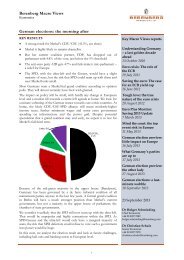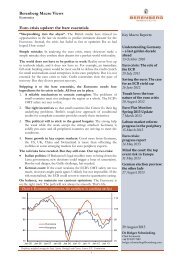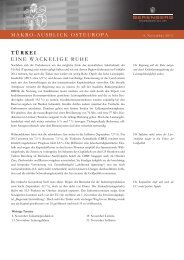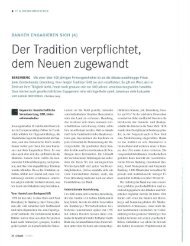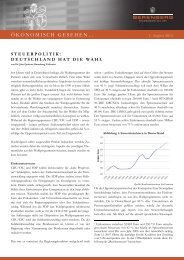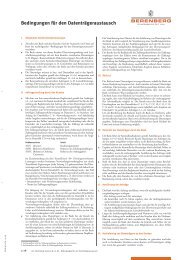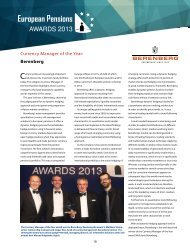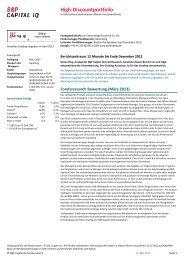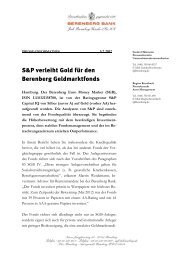Semiconductor Equipment - Berenberg Bank
Semiconductor Equipment - Berenberg Bank
Semiconductor Equipment - Berenberg Bank
You also want an ePaper? Increase the reach of your titles
YUMPU automatically turns print PDFs into web optimized ePapers that Google loves.
Tokyo Electron Ltd<br />
Technology Hardware<br />
3) Our FY 2017 revenue estimate for TEL (see Figure 9) is ¥662bn (27% lower<br />
than the TEL bull-case scenario), comprising SPE revenue of ¥450bn (ie after<br />
applying the 11% share to TEL’s 2017 $40bn WFE estimate), FPD/PV<br />
revenue of ¥101bn (in line with 2007 peak levels, and includes solar revenue<br />
of ¥32bn), and components revenue of ¥111bn (in line with the 2007 peak).<br />
Our operating margin estimate for FY 2017 is 15% (TEL’s estimate: 19%),<br />
including a ¥30bn cost saving compared to the 2012’ ¥146bn level.<br />
4) TEL is aiming to gain share in the etching and cleaning markets, although so is<br />
AMAT (which plans to gain a 2-4% WFE share by 2016) and LAM (which is<br />
looking to gain by 3-5% in etching and by 5-10% in the cleaning market). In<br />
our opinion, with neither an established market position nor experience of<br />
these growing markets, TEL is in a weaker position than AMAT and LAM to<br />
gain share.<br />
Yen depreciation – limited impact<br />
The yen has depreciated by 30% against the US dollar since 2012. However, we<br />
believe the impact on TEL has been limited. From an operational/cost<br />
perspective, its operations are not heavily exposed to FX movements. TEL’s sales<br />
contracts are mostly denominated in yen and it hedges its foreign-currency<br />
exposures. Its main manufacturing plants are all based in Japan. Therefore the<br />
impact on its operations/cost base is limited.<br />
From a competitiveness perspective, the depreciation in the yen makes TEL’s<br />
prices more competitive compared to its US peers AMAT’s and LAM’s. However,<br />
we do not expect TEL to benefit much from this, as we do not believe chipmakers<br />
will switch vendors purely because of lower prices. From our conversations<br />
with industry specialists, chip-makers care more about equipment performance,<br />
reliability and support services than price.<br />
Even if chip-makers did switch due to lower prices, TEL’s gain could still be very<br />
limited as it only competes with US competitors in some of its end-markets and<br />
other Japan-based competitors such as Hitachi and Dainippon have the same<br />
advantage.<br />
126


